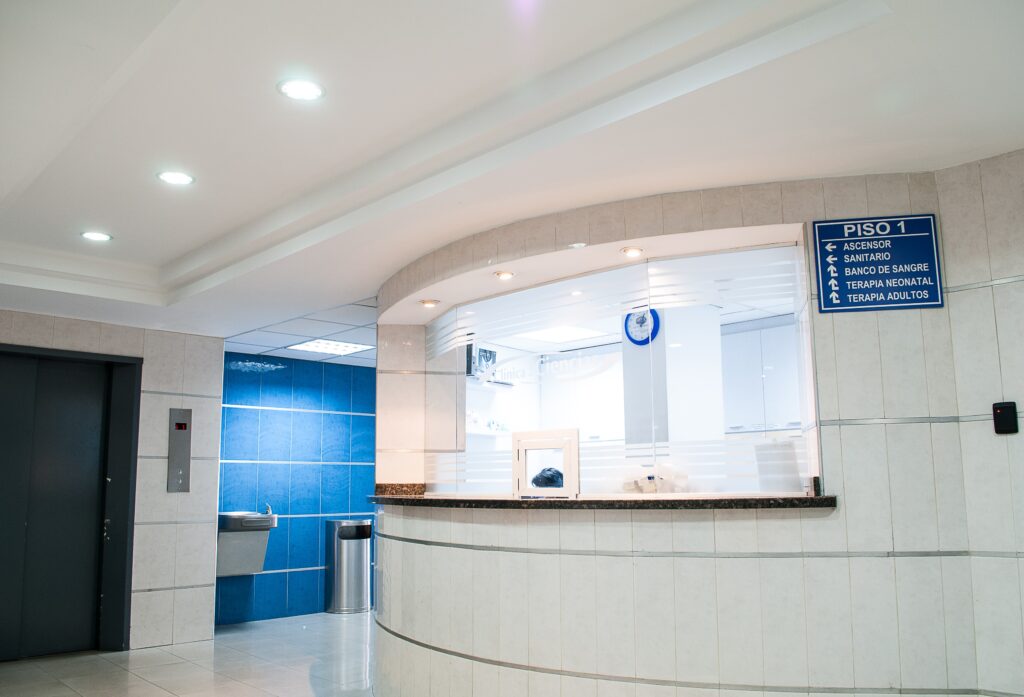Introduction
Welcome to a healthcare revolution, where the once distant dream of predictive analytics in healthcare is now an empowering reality. In this new era, the fusion of data analytics with deep medical insight and health informatics is not just changing, but revolutionizing how we approach our health and wellness. Gone are the days when we were mere patients passively awaiting treatment; now, we are active contributors to a healthcare story that evolves with each piece of gathered data.
The Essence of Predictive Analytics in Healthcare
Essentially, predictive analytics in healthcare represents a deep-seated shift. It’s about moving away from simply reacting to health issues as they come, to a more intuitive approach where we anticipate and act on health concerns before they fully develop. It harnesses the rich information in Electronic Health Records (EHRs), personal health details, and genetic insights, all deciphered through the advanced scope of machine learning in medicine. This approach is proactive, using data analytics not to just react to health issues but to anticipate and tackle them head-on.
The Transformative Role of Data Analytics
In this transformative journey, data analytics plays a pivotal role. Every medical interaction and every data point feeds into a growing repository of knowledge. When we analyze this data, it’s not just a set of numbers; it’s a roadmap to understanding and improving health outcomes, guiding us toward care that is both preemptive and personalized.
A Real-World Impact: Shaping Chronic Disease Management
Here’s a real-life scenario that illustrates the impact: A team of visionary doctors, equipped with predictive analytics, combed through their EHRs to identify patients at an elevated risk of heart disease. Instead of waiting for the first signs of trouble, they intervened with tailored lifestyle modifications and regular monitoring. The result was a remarkable decrease in new heart disease cases, showcasing the profound capabilities of big data in healthcare. This isn’t just about managing diseases; it’s about proactively shaping health outcomes.
Setting the Stage for Discussion
As this article unfolds, remember that predictive analytics in healthcare represents more than just technological advancement. It marks a shift towards a future where healthcare is not solely reactive but is defined by its ability to foresee, prevent, and personalize, all driven by the remarkable insights offered by data.

Ever Wondered What Predictive Analytics in Healthcare Is All About?
Just picture this: predictive analytics in healthcare is like having a personal health oracle. It doesn’t just guess; it uses real data to reveal important clues about your health. It’s like having a secret window into your future well-being. Hard to believe. But it’s true! This isn’t science fiction. Imagine navigating through a vast ocean of health data – from the intricate details in your Electronic Health Records (EHRs) to each step recorded by your fitness tracker. The exciting part? Sophisticated algorithms and machine learning process this information, integral components of predictive analytics in healthcare. Their mission? To provide early insights into our future health.

1. Data, Data Everywhere:
Consider every doctor visit, health test, and daily jog. Each piece of this information forms a crucial part of the health puzzle. Predictive analytics in healthcare sifts through this treasure trove of data to identify health trends that would typically go unnoticed.
2. Algorithms: Our Health Detectives:
These are not ordinary algorithms; they’re akin to detectives examining clues. In predictive analytics in healthcare, they connect the dots between lifestyle habits, genetic predispositions, and potential health risks, unveiling concealed health insights.
3. Custom-Fit Healthcare:
Here, your healthcare receives a personalized approach. Informed by predictive analytics in healthcare, doctors can devise health plans specifically crafted for you. It’s akin to having a health roadmap designed exclusively for your body and lifestyle.
4. Smartening Up Hospitals:
Hospitals leverage predictive analytics in healthcare to anticipate busy periods, manage staff and resources, and reduce patient wait times. This approach is all about making healthcare more prompt and efficient for everyone.
5. Staying One Step Ahead of Illness:
In managing chronic illnesses, predictive analytics in healthcare truly excels. Think of it as a proactive early-warning system. It can alert us to potential health issues well before they become critical, offering a head start in managing conditions like diabetes or heart disease.
6. A Public Health Powerhouse:
On a broader scale, predictive analytics in healthcare acts as a champion for public health. It aids in predicting and preparing for events like flu seasons or epidemics, keeping entire communities one step ahead in health matters.

Revolutionizing Healthcare
The Synergy of Data Analytics and Predictive Insight
Predictive Analytics in Healthcare harnesses the vast potential of data analytics to forecast health outcomes and trends. This approach integrates sophisticated machine learning algorithms with comprehensive health data, including Electronic Health Records (EHRs), genetic information, and lifestyle patterns. The goal is to shift from reactive to proactive healthcare, providing personalized treatment plans and preventive care strategies.
1. The Power of Data
Data Analytics in Healthcare:
Exploring the critical role of data in predictive analytics.
Data Types and Technologies:
Delving into EHRs, genetic data, and AI’s role in processing this information.
Data Quality and Integration:
Addressing the challenges and significance of robust data collection.
2. Transition to Real-World Applications
Bridging theory with practice:
How predictive analytics is applied in healthcare settings.
3. Case Studies or Examples
Example 1:
Chronic Disease Management – Utilizing EHRs for early intervention strategies.
Example 2:
Preventive Care – Leveraging lifestyle data for personalized healthcare plans.
Example 3:
Hospital Administration – Using predictive models to optimize resource allocation.
4. Analysis of Case Studies
From each case, we gain valuable insights that demonstrate the effectiveness and challenges in implementing predictive analytics and the transformative impact of data-driven approaches across various healthcare scenarios.
The integral role of data analytics is unmistakable in enhancing healthcare, paving the way for the future of predictive analytics. This innovative approach is not just redefining healthcare as we know it but is also setting the stage for a new era of proactive and personalized healthcare solutions.
Applications and Benefits of Predictive Analytics in Healthcare
The integration of Predictive Analytics in Healthcare, a field deeply intertwined with Data Analytics, is a testament to how technology is revolutionizing patient care and health system management. In this section, we explore the diverse applications and substantial benefits of this innovative approach, emphasizing your focus keyword and related LSIs.
1. Customized Patient Care:
Predictive analytics has ushered in an era of personalized medicine. Using Data Analytics, healthcare providers can now develop bespoke treatment plans based on individual patient histories, genetic information, and lifestyle choices. This personalized approach ensures more effective treatments and a higher rate of patient recovery and satisfaction.
2. Early Detection and Disease Management:
A critical application of Predictive Analytics in Healthcare is in early disease detection. By identifying markers and risk factors for various conditions, from chronic diseases to potential acute episodes, predictive models enable healthcare providers to intervene earlier, improving patient outcomes significantly.
3. Healthcare Operational Efficiency:
Predictive models greatly enhance the efficiency of healthcare operations. By analyzing patient flow and resource utilization data, hospitals can optimize staffing, reduce wait times, and improve overall service delivery, making healthcare systems more responsive and cost-effective.
4. Public Health Surveillance and Response:
On a broader scale, predictive analytics is vital for public health monitoring and emergency preparedness. It helps predict disease outbreaks, understand epidemiological trends, and formulate effective responses to public health emergencies, thus playing a pivotal role in community health and safety.
5. Pharmaceutical Advancements:
In pharmaceutical research and development, predictive analytics, fueled by robust Data Analytics, accelerates the discovery and testing of new drugs. Analyzing clinical trial data and patient outcomes allows for faster development of effective medications, enhancing the arsenal of treatments available in healthcare.
6. Comprehensive Improvement in Health Outcomes:
Overall, the application of Predictive Analytics in Healthcare leads to a holistic improvement in health outcomes. Shifting from a reactive to a proactive healthcare model, it promotes preventive care, reduces the incidence of severe health complications, and leads to a more efficient healthcare system.

Challenges and Considerations of Predictive Analytics in Healthcare
While we’re all excited about the wonders of Predictive Analytics in Healthcare, it’s like any groundbreaking change – it comes with its own set of challenges. We’re navigating new territory here, especially in terms of Data Analytics, and it’s not all smooth sailing. Let’s talk about what keeps healthcare professionals up at night when they think about predictive analytics.
1. Keeping Patient Data Safe:
Imagine having your most personal health details out in the open. Scary, right? That’s the top concern with predictive analytics. As we rely more on Data Analytics, the risk of data breaches shoots up. Protecting patient privacy is not just about ethics; it’s about maintaining trust in our healthcare systems.
2. Garbage In, Garbage Out:
The saying “garbage in, garbage out” really hits home in predictive analytics. The quality of our data is everything. We’re dealing with a mishmash of information from various sources, and it’s a challenge to make sure it’s all accurate, consistent, and usable. Bad data means bad predictions, and nobody wants that.
3. Fairness for All:
Here’s a tricky one – how do we keep our predictive models fair? It’s all too easy to unintentionally bake biases into these systems. This can lead to unequal healthcare, where some groups get left behind. Ensuring that predictive analytics is ethical and equitable is a huge and ongoing challenge.
4. Navigating the Red Tape:
Healthcare is wrapped in layers of regulations and for good reasons. But as predictive analytics evolves, so too must our understanding of these regulations. Staying compliant while pushing the boundaries of technology is like walking a tightrope – it requires skill, balance, and a whole lot of nerve.
5. Teaching Old Dogs New Tricks:
No offense to any healthcare pros out there, but predictive analytics needs a whole new skill set. We’re talking serious data science chops. There’s a gap between what we know and what we need to know, and bridging this with training and education is a big hurdle.
6. From Numbers to Nurses:
Lastly, how do we take all these cool insights from predictive analytics and make them work in the real world? It’s one thing to have data-driven predictions; it’s another to integrate these into everyday clinical practice. Changing workflows and getting buy-in from healthcare staff is no small feat.

The Future Outlook of Predictive Analytics in Healthcare
Alright, let’s step into a time machine and zoom into the future of healthcare. We’re talking about a world where Predictive Analytics in Healthcare isn’t just a fancy term but a daily reality, transforming lives. This future, supercharged by Data Analytics, is like the coolest sci-fi movie, but real.
1. Hyper-Personalized Medicine:
Imagine a world where your doctor knows exactly what you need before even you do. That’s where we’re headed with predictive analytics. Treatments will be so personalized they’ll consider everything from your DNA to the air you breathe. It’s like having healthcare tailored just for you, down to the last detail.
2. Smarter Predictive Models:
The predictive models of the future? They’re like the brainiacs of healthcare. They’ll get smarter, thanks to AI and machine learning, making sense of heaps of data to give us insights we can barely imagine now. This means predictions are so spot-on, that they almost seem magical.
3. Everyone’s In Sync:
In this future, predictive analytics isn’t just stuck in some lab; it’s part of the whole healthcare system. Hospitals, clinics, and your GP – they’re all connected by this web of smart predictions, making sure everyone’s on the same page when it comes to your health.
4. Public Health Turns Proactive:
Public health will get a major boost from predictive analytics. Think of it like a global health guardian, predicting outbreaks and guiding public health decisions. It’s about being prepared for whatever health challenges come our way, on a community, even global scale.
5. Ethics and Rules Keep Up:
As we rely more on predictive analytics, the rules and ethics surrounding it will evolve too. It’s all about using this power responsibly, keeping data safe, and making sure everyone gets a fair shake from these advancements.
6. Closing the Data-Care Gap:
Finally, the future means not just having cool data but knowing what to do with it. Healthcare pros will become whizzes at using predictive insights and making real-time decisions that make a real difference.

Conclusion
Stepping Boldly into a Healthier Tomorrow
As we wrap up our journey through the world of Predictive Analytics in Healthcare, it feels like we’ve just taken a peek into the future. And what a future it looks like! Driven by the incredible strides in Data Analytics, this isn’t just a shift in healthcare technology; it’s a whole new way of looking at our health journey.
Think about it – personalized healthcare tailored just for you, not in some distant future, but right here, right now. It’s like having a health guardian angel, powered by data, predicting and guiding us towards the best choices for our well-being. From transforming how our doctors treat us to making public health systems more proactive, predictive analytics is rewriting the healthcare story for everyone.
But let’s not forget, every great advancement comes with its challenges. It’s like navigating a new landscape – exciting but a bit daunting. Keeping our health data safe, ensuring fairness in these smart systems, and getting everyone up to speed with these techy tools – these are hurdles we need to jump over. Yet, these challenges are also stepping stones, pushing us to innovate and grow.
So, what does the future hold with Predictive Analytics in Healthcare? I’d say it’s a future brimming with potential. A future where healthcare is not just about fixing what’s broken but about keeping us healthy in the first place. It’s a future that’s more in tune with our individual needs, more responsive to public health challenges, and yes, a lot more tech-savvy.
As we step into this new era, it’s not just about embracing new technologies. It’s about opening our arms to a healthier, more informed way of living. It’s about being proactive, not reactive. And most importantly, it’s about each of us being a key player in our health story, powered by the insights that predictive analytics brings.
Here’s to our health – smarter, safer, and more personalized than ever before. Let’s step boldly into this promising future!



